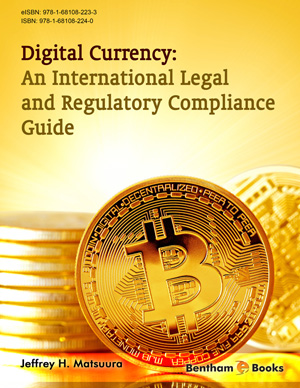Abstract
Laws and regulations directed against money laundering are some of the most active legal compliance obligations facing the virtual currency community globally. Authorities fear use of digital currencies for money laundering and for direct financing of illegal conduct due in large part to the largely anonymous and international nature of virtual currency systems. In most jurisdictions, existing rules against money laundering have either been interpreted to address digital currencies or are being specifically modified to provide expressly such coverage. Anti-money laundering requirements are most frequently presented in the form of “know your customer” requirements, transaction monitoring obligations, and mandatory reporting rules. These requirements are most commonly applied to “money services businesses” which include banks and other financial institutions as well as money transmitters, money transfer services, and exchange trading and conversion service providers. Anti-money laundering laws and regulations present some of the most significant current legal compliance obligations facing the virtual currency community around the world.
Keywords: California, Connecticut, digital currency, dirty money, documentation, Financial Crimes Enforcement Network (FinCEN), Isle of Man, know your customer requirements, money laundering, money services businesses (MSBs), money transfer, money transmission, North Carolina, record-keeping, reporting requirements, Singapore, transaction monitoring, United States Treasury Department, Washington.








.jpg)



